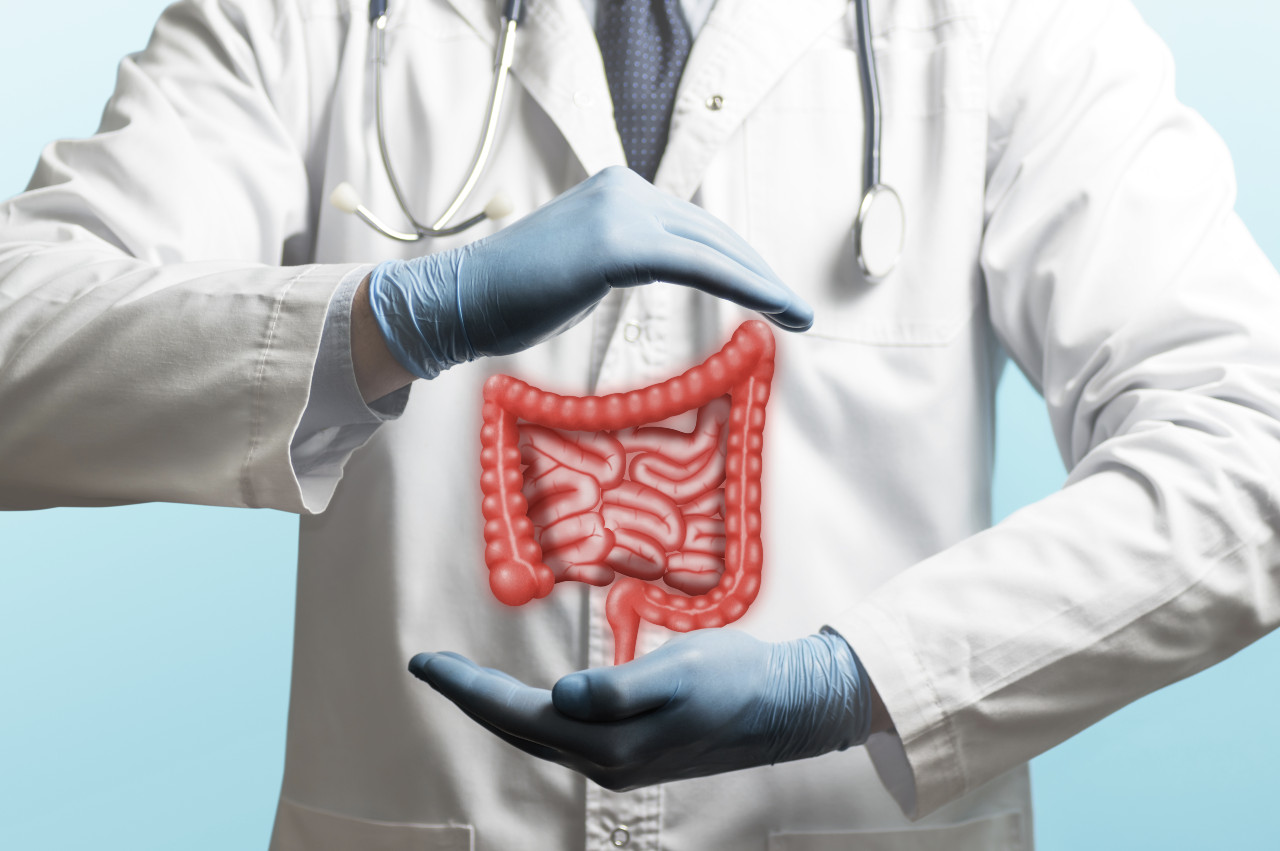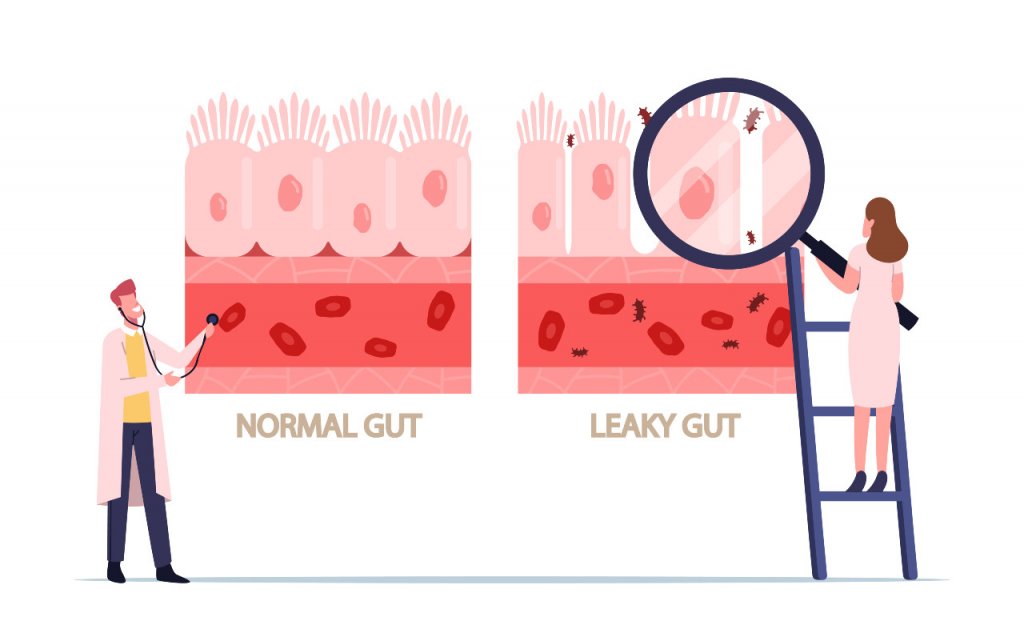Advertising Disclosure
What is leaky gut syndrome and what are its symptoms?

Leaky gut syndrome has been a topic of much discussion in recent years. It’s also been the subject of much debate. That’s because medical professionals can’t seem to agree on whether it even really exists. And whether you’ve heard of it or not, leaky gut syndrome (LGS) is something that confuses most people. Gastroenterologist Dr. Donald Kirby has even called leaky gut syndrome “a very gray area” from a medical standpoint. Due to the lack of knowledge, many doctors do not consider leaky gut syndrome a diagnosable condition. But LGS could be a major component to other health issues. So what is leaky gut syndrome?
What is leaky gut syndrome?
What’s described as leaky gut syndrome is a digestive condition that affects the lining of the intestines and allows bacteria and other toxins to enter the bloodstream through gaps in the intestinal walls.
LGS has been linked to IBS, Crohn’s disease, celiac disease, diabetes and more. It is crucial to remember that we don’t know whether LBS is the cause or a symptom of these conditions. As we learn more about LGS, it’s important to keep note of the symptoms. Check out some of the most common symptoms below, and get familiar with LGS.
Digestive system changes
Because leaky gut syndrome is a digestive condition, changes in your digestive system are a major symptom of LGS. These changes include bloating, chronic diarrhea, constipation, gas or irritable bowel syndrome.
Increase in mental health issues
LGS can negatively affect your mental health. Some doctors believe disorders such as anxiety, depression, attention deficit disorder (ADD) and attention deficit hyperactivity disorder (ADHD) dovetail in some situations with leaky gut syndrome.
Skin issues
Skin issues are a common symptom of leaky gut syndrome. And LGS can affect skin in a variety of ways. LGS has been connected to acne, rosacea and eczema, a condition where patches of skin become itchy, red, inflamed and cracked. It has also been known to cause skin rashes.
Chronic fatigue or fibromyalgia
Both chronic fatigue and fibromyalgia have been linked to LGS.
Chronic fatigue is fatigue that lasts for at least six months. Typically, this fatigue gets progressively worse with physical and mental activity but does not improve with rest.
Fibromyalgia is another complicated condition not fully understood by medical professionals. And it is the second most common condition that affects your muscles and bones. This condition causes widespread musculoskeletal pain. Researchers have said, “fibromyalgia amplifies painful sensations by affecting the way your brain and spinal cord process painful and nonpainful signals. There is not yet a cure for fibromyalgia.”
Other symptoms
Other symptoms connected to leaky guy syndrome include the following:
— Asthmatic symptoms.
— Hormonal imbalances, including Polycystic Ovary Syndrome and Premenstrual Syndrome (PMS).
— Poor immune system.
— Headaches, brain fog, confusion and memory loss.
— Arthritis or joint pain.
— Cravings for sugar or carbs.
— Food allergies, sensitivities or intolerances.
What is leaky gut syndrome’s biggest risk factors?
Though it’s not clear what outright causes leaky gut syndrome, there are some things that are potential risk factors and can raise your chances of getting LGS. These risk factors include:
— Poor nutrition.
— Alcohol consumption.
— Stress.
— Autoimmune disorders.
— Diabetes.
What is leaky gut syndrome’s best treatment?
Clearly, medical professionals still have plenty to learn about LGS. Thus, there is no standard treatment for it. However, there are ways to improve your gut health which can help eliminate or control leaky gut syndrome symptoms. Changing your diet is key to helping your LGS and strengthening gut health. Eating foods with beneficial gut bacteria can work wonders. See more in our guide to improving your gut health.
Food to eat include:
— Vegetables like broccoli, carrots, spinach, ginger, mushroom, potatoes and squash.
— Fruits like bananas, lemons, coconut, strawberries and grapes.
— Healthy fats such as almond oils and avocado.
— Salmon, tuna and other fatty fish.
— Gluten-free grains.
A healthy diet plays a huge role in fighting leaky gut syndrome. This means that there are certain foods to to steer clear from to prevent or help LGS.
Foods to avoid include:
— Bread, pasta and other wheat-based foods.
— Gluten-rich grains.
— Baked goods like cookies, cakes and other pastries.
— Processed meat.
— Dairy products including milk, ice cream and cheese.
— Alcohol and carbonated drinks.
— Junk food and fast food.
On top of eating healthy, maintaining a healthy lifestyle is also important. Exercising regularly, eliminating stress and getting enough sleep all support a healthy gut.
The lack of knowledge about LGS means the symptoms mentioned above are not exclusive to this digestive condition. Talk to your doctor if you have any of the symptoms, because these symptoms could also be the result of other health problems.






